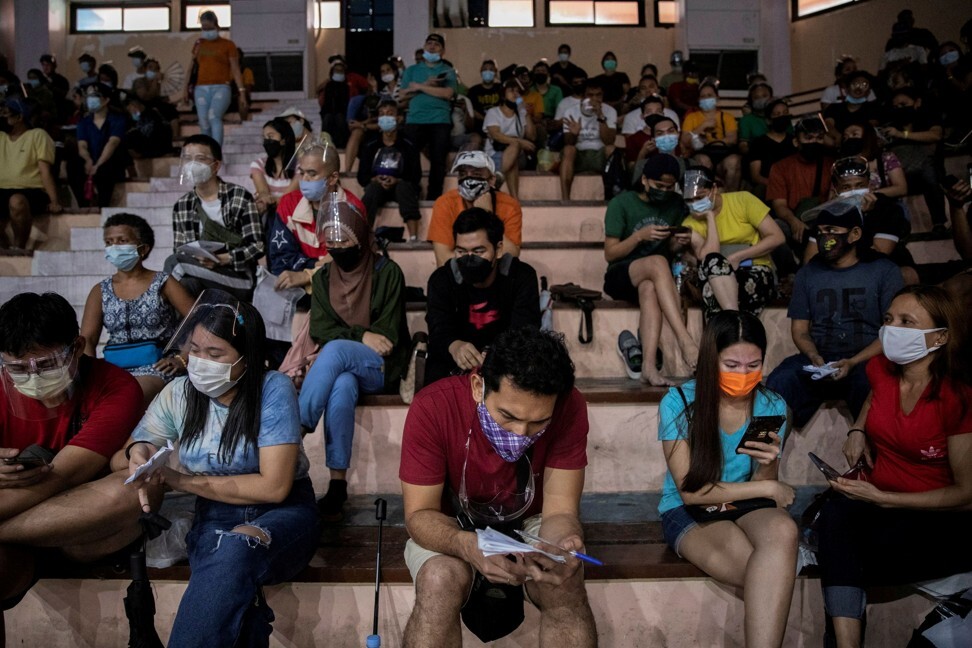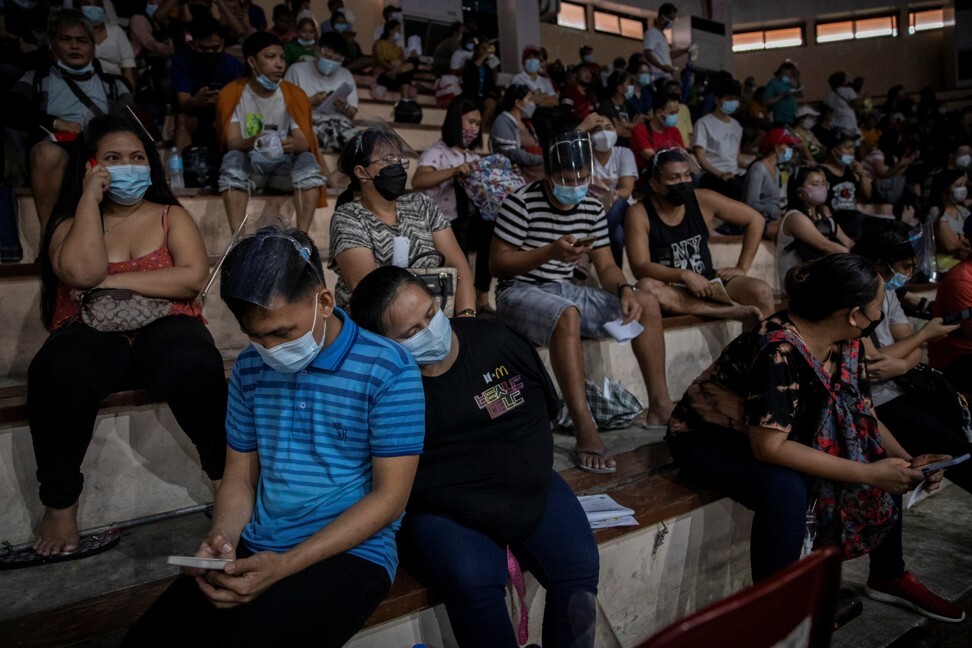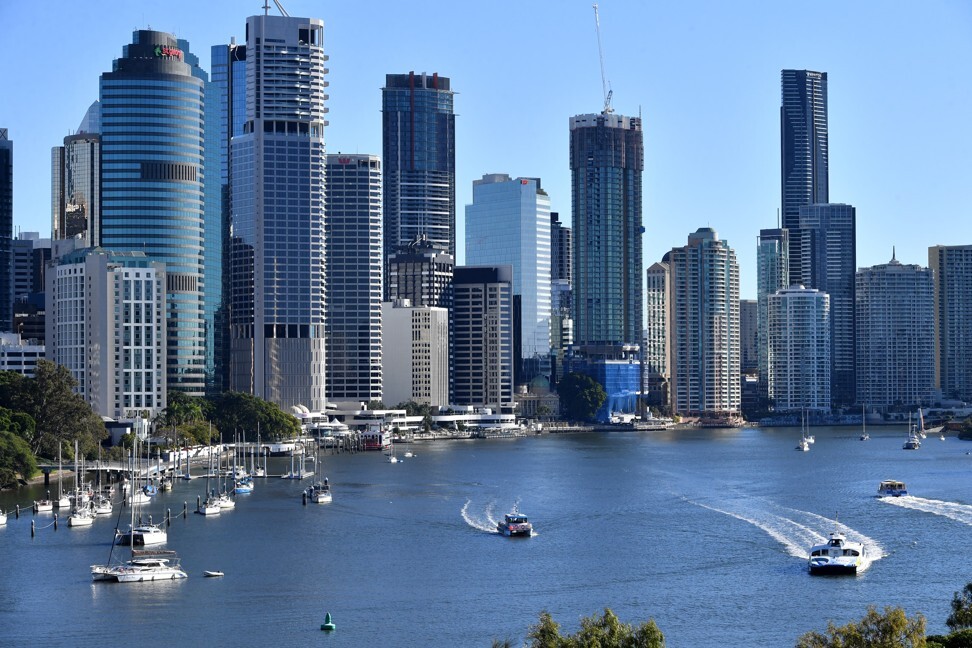
Coronavirus: Malaysia to stop using daily cases to determine easing of curbs; Manila sees vaccine rush ahead of lockdown
- Japan to expand emergency restrictions to eight more prefectures as new clusters of infections emerge
- Sydney saw a record rise in local cases on Thursday, while officials confirmed Google’s Larry Page visited New Zealand despite closed border
The government will instead use Covid-19 hospitalisation rates as one of the three indicators to allow states to move to the third and the final phase of the plan, he said on Facebook. The two other thresholds – the rate of vaccinations ICU occupancies – will remain the same.
“Once 40 per cent of adults have been vaccinated, the number of new cases becomes less relevant because most cases show little to no symptoms, hence reducing the burden on public infrastructure,” Zafrul said in a video message.
Malaysia blames ‘human error’ after empty syringe used for Covid-19 shot
While Malaysia added a record 19,819 infections on Wednesday, 98.1 per cent of the cases showed light to zero symptoms, according to the health ministry.
Still, there was always a chance their health may deteriorate over time, Director General Noor Hisham Abdullah said.
With new infections piling up – daily cases topped a record 20,000 for the first time on Thursday – the government is focusing on speeding up its vaccination drive.
About 31 per cent of the adult population received both doses of the vaccine, and 62 per cent got at least one dose as on August 3, according to the health ministry.
The hospitalisation rate must be three cases per 100,000 of the population for states to move from the second to the third phase, said Zafrul.
Currently, the states of Penang, Kelantan, Terengganu, Pahang and Perak are in the second phase, which allows for opening up more economic sectors.
Hundreds of Malaysian protesters defy virus curbs to demand PM quit
The third phase involves reopening of all economic activities with the exception of those on the negative list, according to the plan. Based on this new indicator, the government allowed Perlis, Sarawak and Labuan to enter the third phase beginning on Wednesday, Zafrul said.
Most states are expected to reach this phase as early as October, according to the premier.
Situation at Japan hospitals ‘extremely severe’
Japan on Thursday decided to expand its coronavirus emergency curbs to cover more than 70 per cent of the population, as a record surge in cases strained hospitals in the Olympics host city Tokyo and other parts of the country.
Suga announced the new steps – which are mostly voluntary, unlike strict lockdowns overseas – as new daily cases in Tokyo hit a record 5,042.

Nationwide new cases topped 15,000 for the first time, while medical advisors to the capital said the Tokyo figure could double in two weeks, NHK public TV reported.
“The situation on the ground (at hospitals) is extremely severe,” Economy Minister Yasutoshi Nishimura told a panel of experts before Suga’s formal announcement. He said serious cases had doubled in the past two weeks.
The panel signed off on the proposal to declare “quasi-emergencies” in eight more of Japan’s 47 prefectures. But Nishimura told a news conference some members had said the situation was severe enough to require a nationwide emergency.
Coronavirus: Japan hits record, reconsiders ‘isolate at home’ policy
Suga told reporters the government was “not considering that now” and would focus on hotspot areas.
Six prefectures including Tokyo are already under full states of emergency to last through August 31, and another five are under less strict directives, meaning just over half the population is covered by some restrictions.
Games organisers on Thursday reported 31 new Games-related coronvairus cases, bringing the total since July 1 to 353.
Just under 31 per cent of residents of Japan are fully vaccinated. With 15,221 deaths recorded as of Wednesday, the coronavirus mortality rate was about 1.6 per cent, in line with the US.
Chaos at Manila vaccination sites
Movement restrictions will be reimposed across greater Manila, an urban sprawl of 16 cities that is home to 13 million people, from midnight on Thursday to try slow the spread of the highly infectious Delta variant.
Authorities are expected to announce later on Thursday whether adjacent provinces will also be pulled into the lockdown as health facilities are overwhelmed.
Covid-19 vaccine or jail, Duterte tells Filipinos: ‘You choose’
Maricel Bacay, a 59-year-old homemaker, was queueing outside a mall in Antipolo city in Rizal, one of those neighbouring provinces, at 3am to try beat anticipated crowds.
“There was news that you can’t get inside the malls or supermarket if you’re not vaccinated,” Bacay said.
Photos on social media showed people jostling each other to be the first in line at vaccination centres, prompting police intervention to enforce social distancing rules.
With around 1.6 million coronavirus cases and more than 28,000 deaths, the Philippines has the second-worst coronavirus outbreak in Southeast Asia after Indonesia.
Just 10.3 million people, or 9.3 per cent of the Philippines’ 110 million population, have been fully vaccinated. The government target is to immunise up to 70 million people this year.
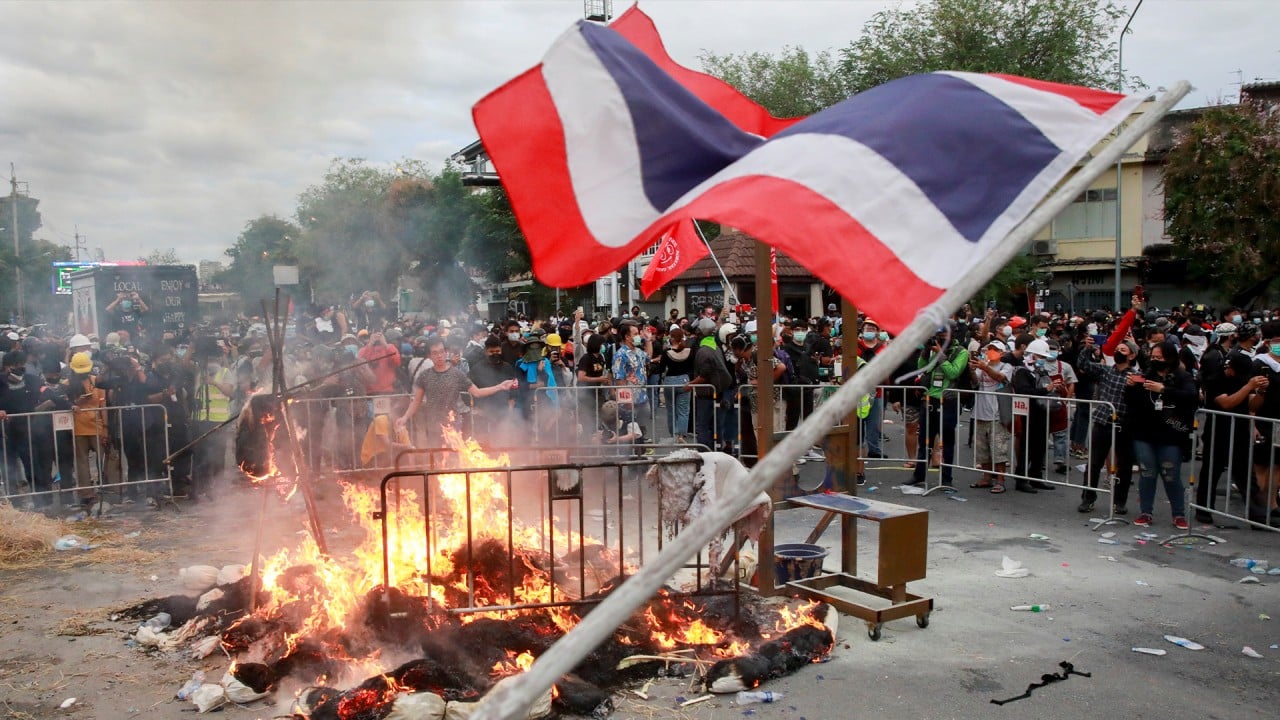
03:07
Thailand sees overwhelmed hospital morgues and renewed protests amid biggest Covid-19 outbreak
Melbourne under 6th lockdown
The Australian state of Victoria imposed a week-long lockdown on Thursday, the regional government said, after eight new coronavirus cases were confirmed by the health authorities.
The measure enters effect at 8pm and will initially apply for seven days, said State Premier Daniel Andrews, and comes just one week after its earlier lockdown restrictions were lifted.
Under the regulations, people will only be allowed to leave their homes in exceptional circumstances, such as to buy food.
The lockdown is the sixth to be imposed in the state since the pandemic first broke out.
“I can‘t tell you how disappointed I am to have to be here doing this again,” Andrews said. ”But with so few in the community with one vaccination, let alone two, I have no choice but to accept advice, and we collectively have to make this important decision to keep Victorians safe.”
Australia’s inoculation campaign is only making slow progress, mainly due to widespread vaccine scepticism.
Another lockdown in place in Sydney and parts of New South Wales, imposed at the end of June, was recently extended until the end of August.
Australian Olympians left vomit in room, caused chaos on flight home
Similar measures were introduced in Newcastle and the Hunter Valley on Wednesday, which initially apply for one week.
Australia, with a population of 25 million, was initially successful in containing infection numbers, thanks in part to strict regulations.
However, the country has introduced several lockdowns in response to the spread of the more transmissible Delta strain of the virus.
The authorities announced around 35,000 cumulative cases on Wednesday since the pandemic‘s start, while 925 people have died of Covid-19 during that time.
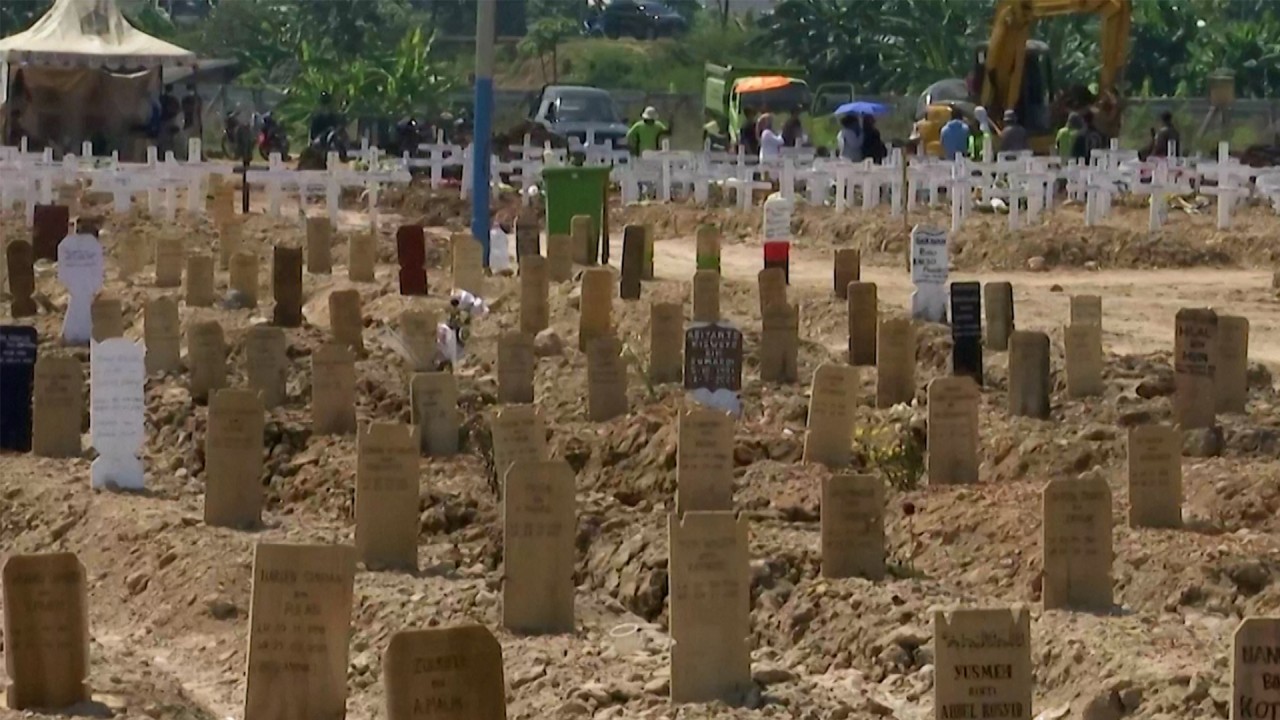
02:14
Indonesia mourns coronavirus victims as daily death toll reached another record high
Google’s Larry Page visited New Zealand despite closed border
The billionaire’s visit prompted criticism from Prime Minister Jacinda Ardern’s political opponents, who demanded an explanation for why he was permitted to enter despite coronavirus travel restrictions.
Immigration New Zealand general manager of border and visa operations, Nicola Hogg, said that Page “met relevant requirements” to be approved entry to New Zealand.
A government spokesperson on Thursday said Page was a New Zealand resident.

Page had reportedly been based on an outlying Fijian island during the Covid-19 pandemic.
New Zealand’s opposition ACT Party called on Ardern’s government to be more open about his visit.
“The government has questions to answer about why billionaire Google co-founder Larry Page was allowed into New Zealand when desperate Kiwis and separated families can’t get through the border,” ACT leader David Seymour said.
“Larry Page was allowed into New Zealand but the government won’t give any details about why he was allowed in.”
New Zealand rejects claims Pfizer vaccine increases breast size
Page visited New Zealand when a child required hospital treatment, the Stuff news website said, quoting New Zealand businessman Stephen Tindall who knows him personally.
Tindall said Page had left New Zealand “quite a while ago”.
Seymour said while he had sympathy for Page’s situation, there were numerous people with similar issues who could not get in.
“I have had to tell them, ‘sorry, but there is no way you can get through the border, government policy will not allow it’,” he said. “New Zealanders stranded overseas who are desperate to get home deserve answers.”
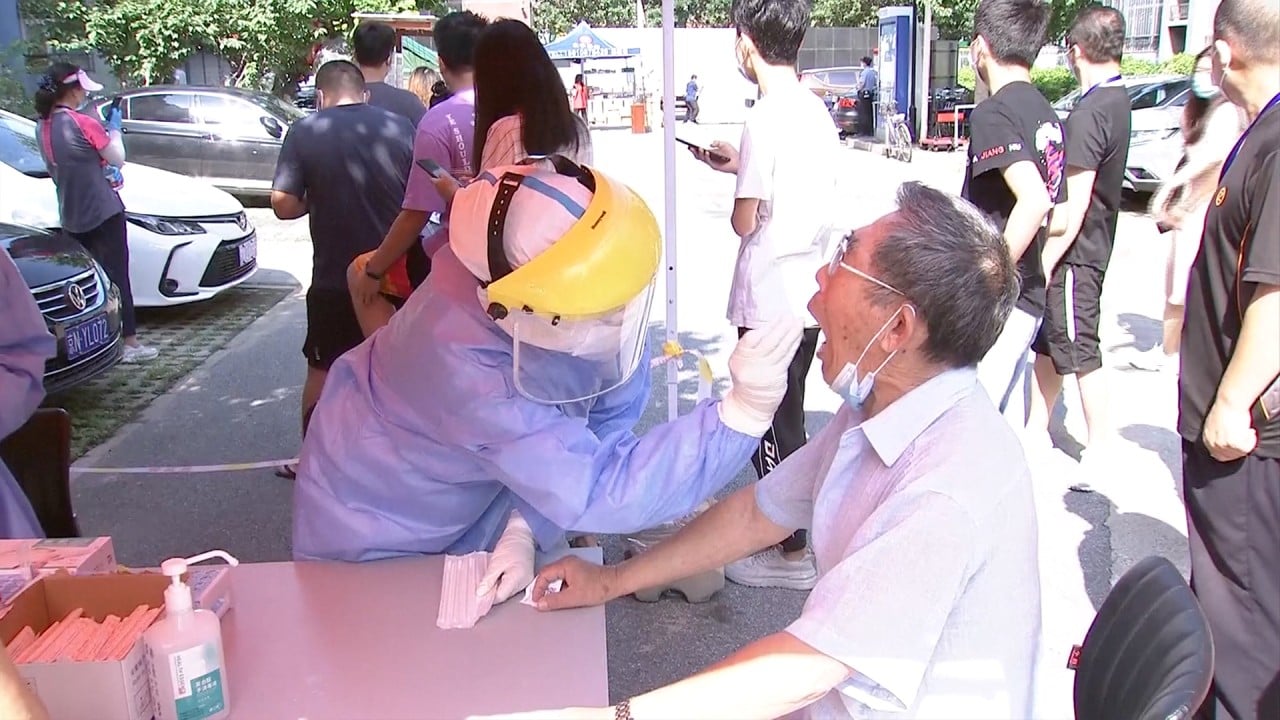
03:18
Mass Covid-19 testing under way across China amid rising infections fuelled by Delta variant
India tells states to impose restrictions
The Indian government has asked state authorities to impose restrictions ahead of festivals across the country, warning that overcrowding could lead to “superspreader” events and a new surge in Covid-19 infections.
India has reported an average of 30,000 to 40,000 new coronavirus cases every day since July, and the federal government has warned that although infections have dipped from a high of 400,000 daily at the peak of the deadly second wave, the danger has not abated yet.
India’s busy festival season begins this month, with several celebrations dotting the calendar until November, when the Hindu festival of lights, Diwali, celebrated by millions, takes place.
Coronavirus model that predicted India’s second wave points to more heartache
The western state of Maharashtra, which was the worst-affected region in the second wave, has significantly eased restrictions in the last month. The state is still reporting the second-highest caseload in the country, behind Kerala.
“Wherever there are clusters, there should be containment zones,” Vinod Kumar Paul, a top government adviser, said at news conference this week.
About 129 million people were inoculated in July, but the pace will have to pick up if the government is to meet its stated aim of vaccinating 950 million Indian adults by the end of the year.
On Thursday, India reported 42,982 new cases and 533 deaths in the last 24 hours, the federal government said, taking its total caseload to 31.8 million.
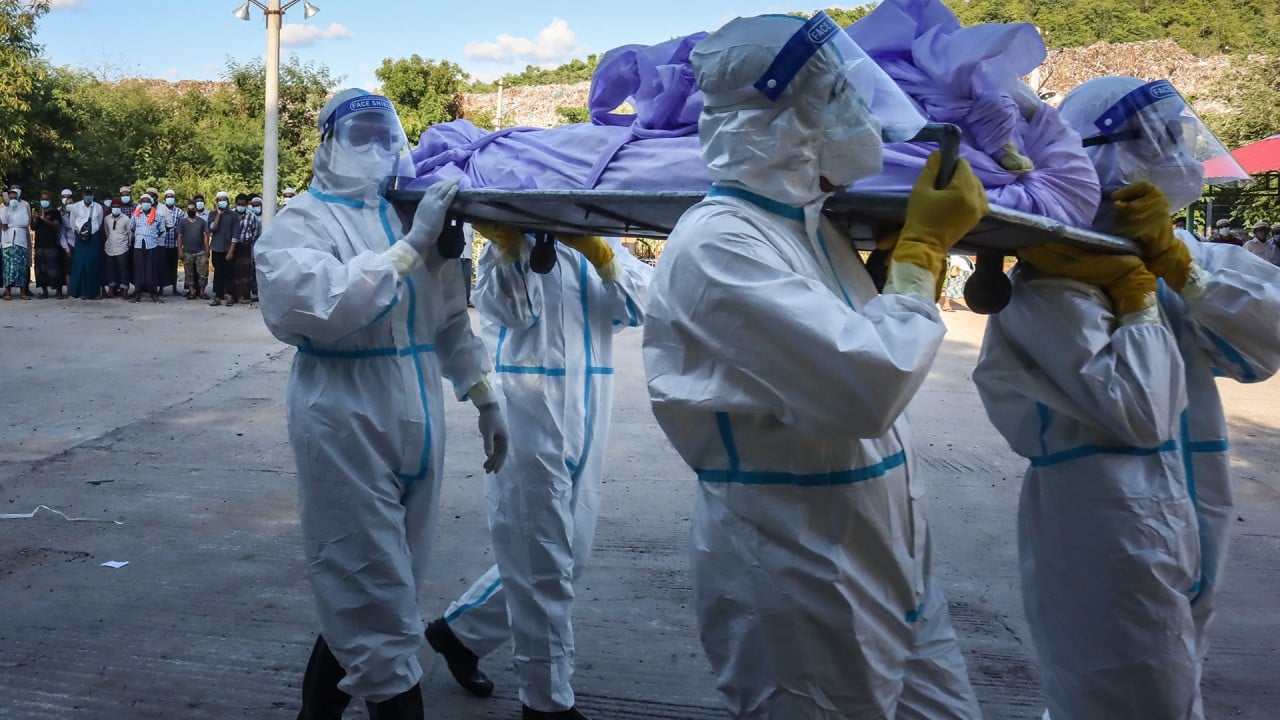
03:46
Myanmar’s volunteers help during Covid-19 surge as country grapples with post-coup fallout
South Korea pledges US$1.92 billion to boost vaccine production
The remarks were made at a meeting of a public-private committee newly launched to explore ways to boost vaccine production amid global supply shortages and shipment delays.
BTS to return to UN as South Korea’s special envoy for post-Covid world
“We will strive to take a leap forward to become one of the top five global vaccine producers by 2025,” Moon told the meeting, pledging 2.2 trillion won over the next five years.
The panel includes medical and vaccine experts, venture capitalists and drug makers including SK Bioscience, Samsung Biologics, ST Pharm and Ecell.
Moon has made the vaccine production drive a key priority for the remainder of his term, due to end in March, facing pressure at home over the fourth Covid-19 wave and a slowed immunisation campaign.
Reporting by Reuters, AFP, Bloomberg, AP, dpa

